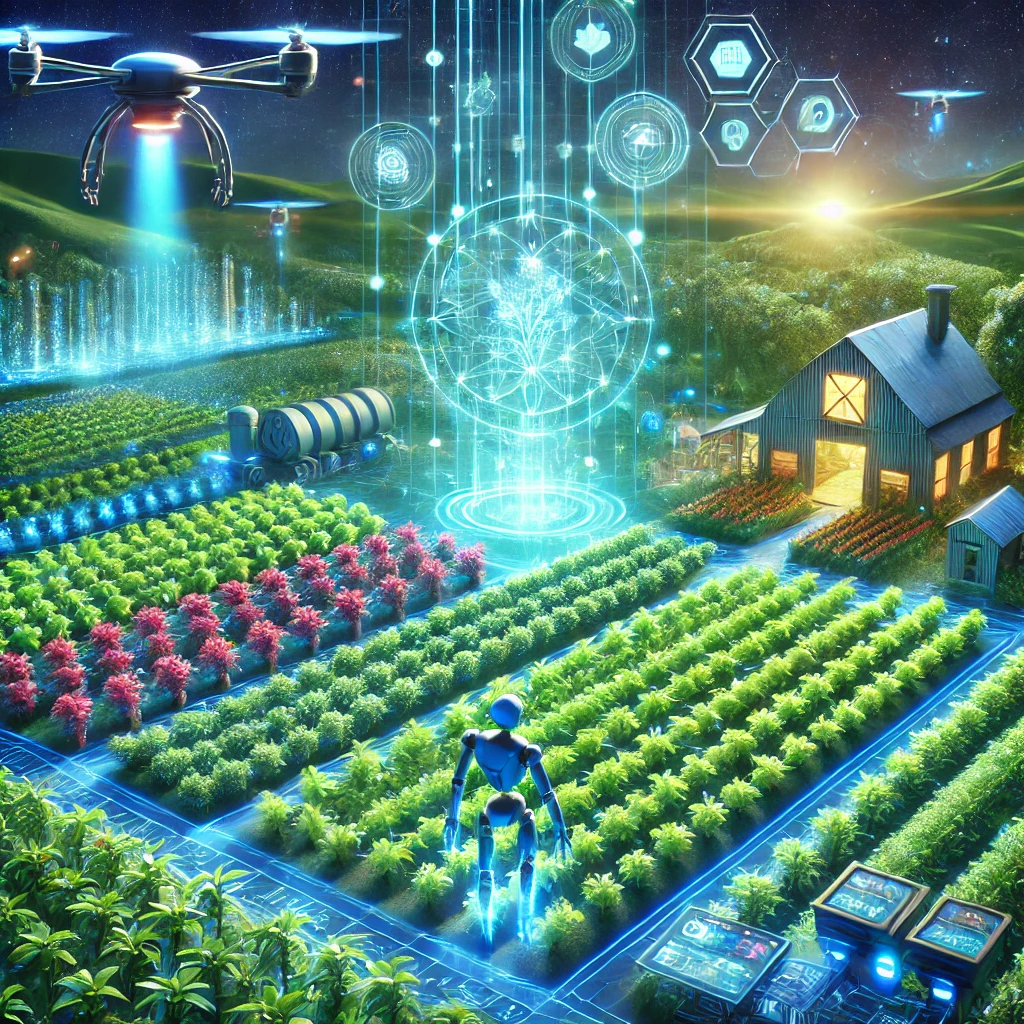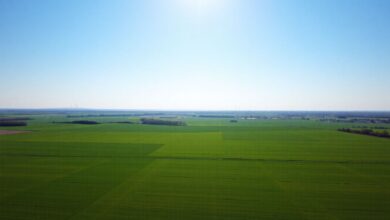In the digital age, innovation is transforming nearly every sector, and agriculture is no exception. Amid growing concerns over food security, sustainability, and climate change, the agricultural industry is looking to technology to address some of its most pressing challenges. One of the key players driving this change is d.farm, an innovative platform that’s revolutionizing the way we approach farming by harnessing the power of digital tools. From data-driven solutions to advanced farming techniques, d.Farm is nurturing the seeds of agricultural transformation, helping farmers to grow smarter, more sustainable crops.
What is d.farm?
d.farm is an all-encompassing digital platform designed to help farmers optimize their operations using technology and data. The platform integrates a range of digital tools, such as real-time data analytics, satellite imagery, IoT-based sensor systems, and predictive models, to enhance farm management and crop productivity. Whether it’s monitoring soil moisture, predicting weather patterns, or tracking plant health, d.farm is aimed at empowering farmers to make data-driven decisions that improve yield, reduce costs, and promote sustainability.
As the world grapples with unpredictable weather, limited resources, and a growing demand for food, d.farm brings innovation directly to the fields. It provides farmers with the resources and knowledge they need to adapt and thrive in an era where precision and efficiency are key to success.
Digital Transformation in Agriculture
Historically, farming has been reliant on manual methods and gut-feelings to make decisions. These time-tested techniques, however, are increasingly being replaced by digital agriculture. Technologies like satellite imagery, IoT sensors, and data analytics are enabling precision farming practices—where every decision is informed by hard data rather than conjecture. And it’s not just big, industrial farms that benefit from these tools; even small family-owned farms can take advantage of these advancements.
Through d.farm, the innovation comes in the form of digital farming tools that gather and process huge volumes of data from various sources, providing insights that would be otherwise impossible or costly to achieve. Farmers can monitor factors like soil conditions, crop health, pest activities, and resource consumption in real-time. These insights allow farmers to take quick action when issues arise, ensuring crops remain healthy and productive.
Moreover, the platform promotes predictive farming, where patterns are analyzed, and future trends are forecasted. Through algorithms that factor in weather, soil quality, and crop type, d.farm anticipates future events, including pest invasions, water shortages, or the ideal time to plant or harvest, empowering farmers to stay one step ahead.
Sustainability Through Technology
A major issue for modern agriculture is its sustainability—especially as farmers are pressured to produce more with less, all while safeguarding environmental health. d.farm stands out in its emphasis on sustainability, enabling farmers to grow crops more efficiently with minimal ecological impact.
One way d.farm promotes sustainability is by implementing precision agriculture. By using the data provided by IoT sensors and AI-driven analytics, the platform helps farmers determine exactly how much water, fertilizer, and pesticides are required at any given time. Gone are the days of broad application methods, which often result in wastage of valuable resources. For instance, by applying just the right amount of water precisely where and when it’s needed, farmers can conserve water, a resource increasingly at risk of scarcity, especially in drought-prone areas.
Additionally, d.farm assists farmers with soil health management. Its insights into the soil’s nutritional content and moisture levels allow farmers to minimize nutrient runoff—a common contributor to pollution—and promote long-term soil fertility. This ensures that the farming methods are not only productive but also restorative, ensuring that farmland remains healthy and sustainable for future generations.
Empowering Farmers with Knowledge and Community
d.farm goes beyond just offering cutting-edge technology; it also places a strong emphasis on knowledge-sharing and collaboration. Agriculture, although technology-driven, is a community-based endeavor, with farmers often sharing tips, resources, and solutions for overcoming common challenges. d.farm’s platform is designed to encourage this collaboration by enabling users to share data, participate in forums, and exchange best practices.
The platform’s focus on education is key to empowering farmers. While many farmers might initially feel overwhelmed by the new technologies available to them, d.farm is built with user-friendliness in mind. Its clear interfaces, on-demand tutorials, and customer support ensure that even those with limited technological experience can still leverage its power. This integration of accessible education allows all farmers to feel comfortable using the platform, and its intuitive nature fosters a seamless transition to a tech-driven farming future.
In a world where the agriculture industry often feels disconnected due to distance and geographical constraints, platforms like d.farm also facilitate real-time networking and community building. Farmers who once worked in isolation can now connect with others around the world, exchanging expertise and advice, whether it’s about crop diseases, new farming techniques, or ways to optimize production.
Real-World Impact
The real-world impact of d.farm’s innovations has been transformative for farmers who have adopted the platform. Small-scale farmers have reported increased crop yields, reduced input costs, and lower risk of crop failure due to the more informed decisions made possible by the platform’s data.
For large commercial farming operations, d.farm has brought greater efficiencies to large-scale logistics and operations, allowing businesses to implement smarter automation systems for everything from planting to harvesting. This automation improves the speed and efficiency of tasks, reducing labor costs and boosting overall farm output.
Notably, farmers using the platform are experiencing fewer environmental impacts, thanks to the increased precision in resource use. Through real-time monitoring of their operations and data-backed decisions, they are finding ways to lower pesticide and water use and reduce carbon emissions, while still maintaining healthy crop yields. The result? Farms become more sustainable and resilient in the face of a changing climate.
The Future of Farming with d.farm
d.farm isn’t just about improving today’s agricultural practices—it’s about paving the way for tomorrow’s farms. As technology continues to advance, so too will the capabilities of the platform. The future could see even more AI-based innovations, integration with augmented reality for more hands-on insights, and expanded use of blockchain for improved supply chain transparency.
The future of agriculture is inextricably tied to technology, and d.farm is one of the platforms ensuring that future is not only digital but also sustainable and efficient.
Conclusion
d.Farm represents a perfect fusion of traditional farming practices and the promising potential of digital technology. By making data and insights accessible, empowering farmers with more control over their operations, and prioritizing sustainability, d.farm is leading the way toward an innovative agricultural future. In the quest for better food production, smarter practices, and a more resilient ecosystem, d.farm is growing innovation every day—one farm at a time.




